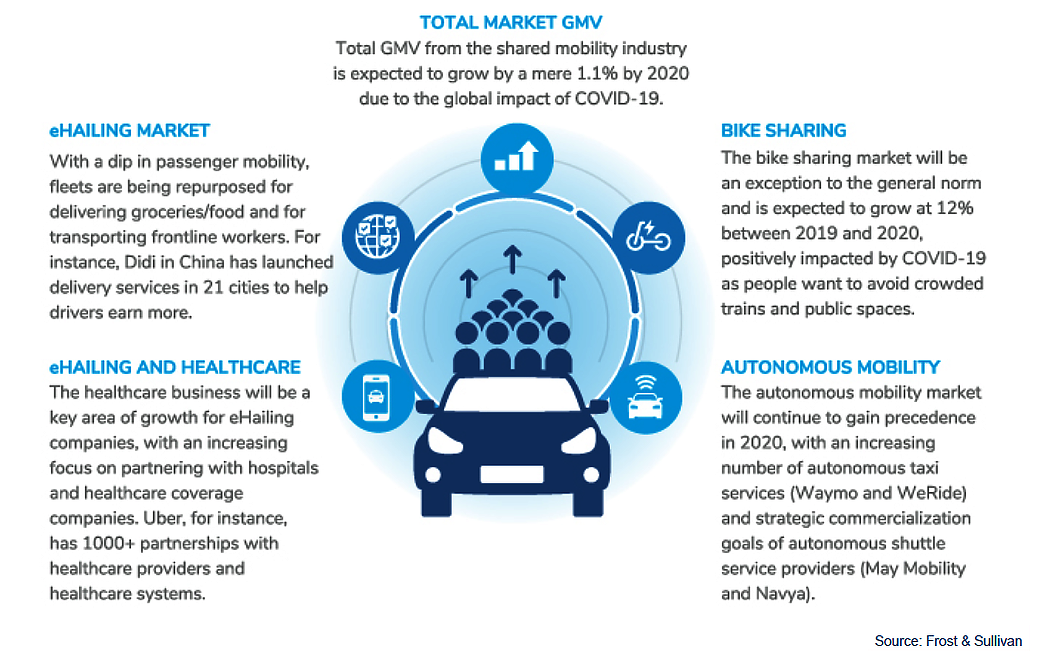Asia's
Only Integrated Showcase for Mobility Innovation Across Air, Land and Sea >
MobilityNews >
Disruptive innovation in the global shared and autonomous mobility market
Disruptive innovation in the global shared and autonomous mobility market
Disruptive innovation in the global shared and autonomous mobility market
GAME CHANGER | 29 JUNE 2020

The mobility industry stands on the edge of a new era, with new technologies disrupting the way we move. We are moving towards a future that will bring together autonomous driving, electrification, and shared mobility.
Bringing together these technologies will allow, for example, the in-app ordering of a driverless taxi that will deliver its customer to a destination and then self-drive to the nearest wireless charge point to prepare for the next booking.
Exciting times
Imagine being able to get where you want to go, whenever you want, without the stress of driving.
Autonomous Vehicle (AV) technology is now coming into its own. Automakers have shifted their driverless vehicle research and development into top gear. Cities are racing to set up their regulatory and liability frameworks to facilitate the deployment of AVs.
In Singapore, the entire western part of Singapore will become a testing ground for autonomous vehicles, under plans unveiled by the Land Transport Authority (LTA), whereas in China, ride-hailing giant Didi Chuxing (DiDi) launched the trial run of self-driving ride service on designated test roads in the eastern metropolis of Shanghai.
AV-enabled mobility could be a central feature in our future town-planning, enabling commuters to get around effortlessly by offering first- and last-mile connectivity within neighbourhoods. The sharing of autonomous vehicles will reduce the number of vehicles on the roads, thereby increasing convenience to commuters.
Our mobility habits will change
The percentage of shared and autonomous mobility in overall road track will rise significantly.
Mobility-as-a-service (MaaS) brings together public transport with private sector offerings such as ride-sharing and bike-sharing together on one platform. By integrating end-to-end trip planning, booking, electronic ticketing, and payment services across all modes of transportation, MaaS can facilitate seamless travel and help mitigate some first-mile and last-mile challenges. It is suggested that by 2030, more than one in three kilometres driven could already involve sharing concepts.
Frost & Sullivan did a study and forecast of the global mobility market for 2020, taking into consideration the impact of COVID-19.

While a slowdown is expected in the global shared mobility market due to COVID-19 autonomous driving will continue to gain precedence in 2020, with increasing number of autonomous taxi services (Waymo and WeRide) and strategic commercialization goals of autonomous shuttle service providers (May Mobility and Navya) – a parallel in the post-pandemic times where contactless delivery and reduced physical interaction are preferred.
